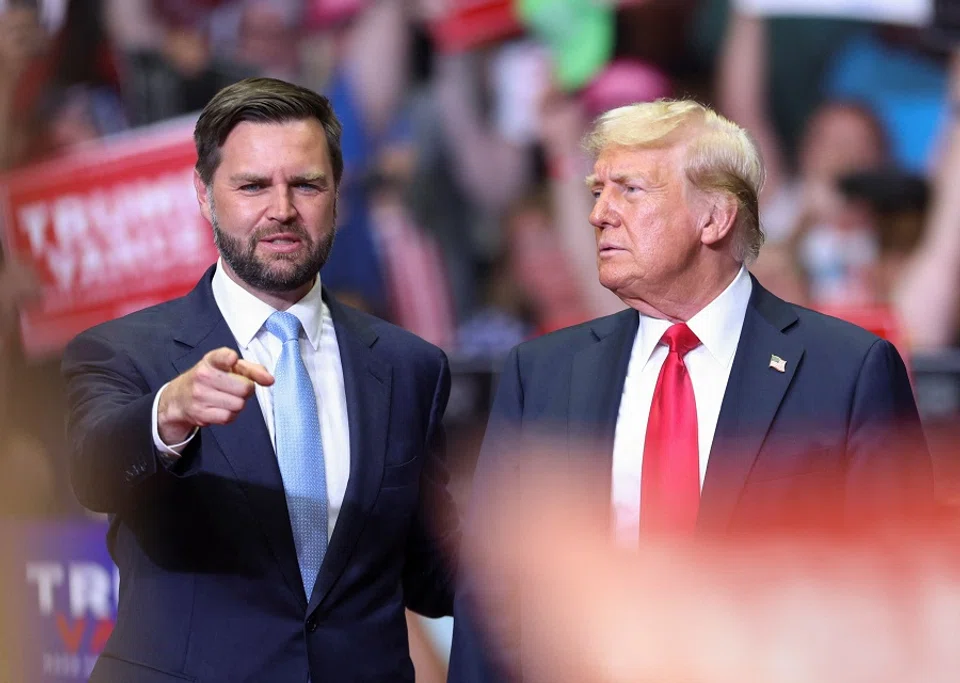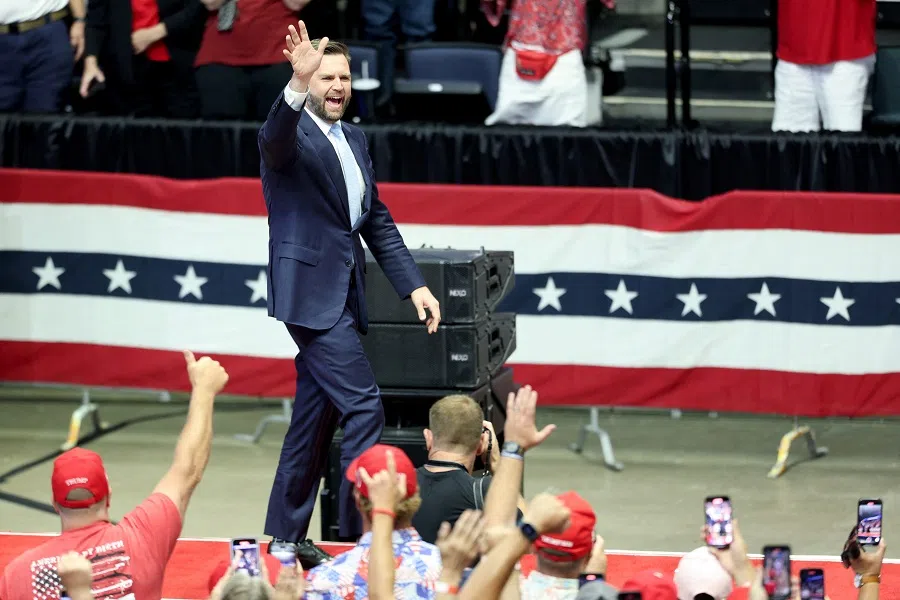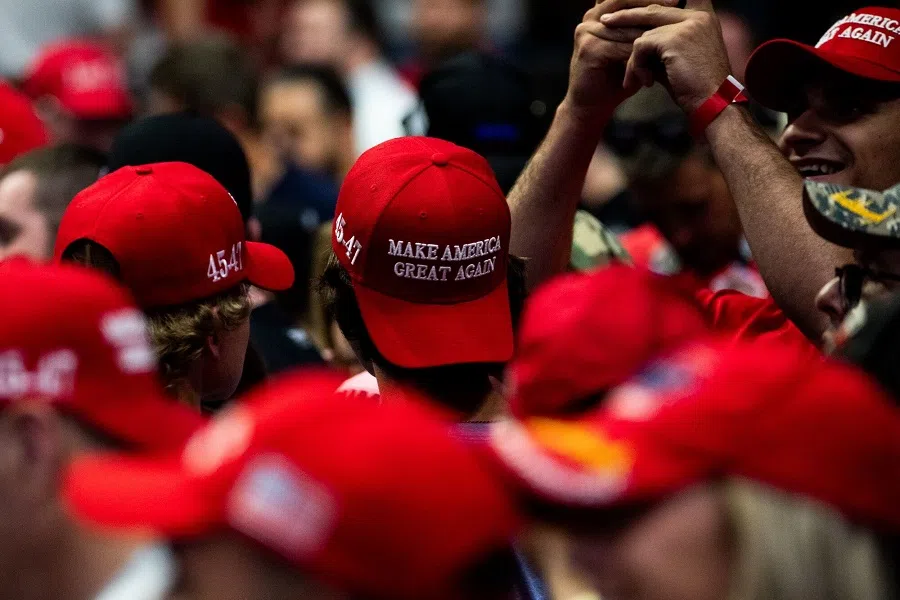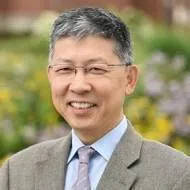What might a Trump-Vance administration mean for China?
US academic Zhu Zhiqun thinks that for China, the most significant impact of a Trump-Vance administration would be on three Ts: trade, technology and Taiwan.

With Biden dropping out of the presidential race, the Democratic Party is scrambling to pick a replacement. As more and more Democratic leaders and donors are endorsing Vice-President Kamala Harris, who said she would run in Biden’s place, most likely she will be the Democratic presidential candidate running against Donald Trump.
Yet neither Harris nor any other Democratic candidate seems as energising or able to unite supporters as Trump does. The attempted assassination of Trump helped boost his popularity among Republican supporters. A victory for Trump in the November election is a real possibility.
The selection of JD Vance as his running mate shows that Trump, if elected, will fill his new administration with like-minded people who share his views on domestic and foreign policies.
An unknown with an inspiring story
Vance, the 39-year old junior senator from the state of Ohio, is unknown to most people. About 60% of Americans surveyed say they do not know him and cannot form an opinion of him, according to a poll conducted just before Trump picked Vance as his vice-presidential candidate. A Trump critic-turned Trump defender, Vance is a champion for the “MAGA” (Make America Great Again) mantra and an “America First” policy.
American politicians, including Trump and Vance, have a habit of blaming other countries for America’s own problems. And China has been an easy scapegoat.
Vice-presidents can have a varied level of involvement in foreign affairs. It is too early to know whether Vance’s views will hold sway in a new Trump administration. However, governments around the world are scrutinising every single word from Trump and Vance to look for clues what their policies might mean for other countries if they got elected.

Politics aside, Vance’s is a great story of the “American dream”. His childhood was marked with poverty and abuse, with a mother struggling with drugs and a father he barely knew. After high school, he served in the US Marine Corps for four years. With the support of the G.I. Bill, he attended the Ohio State University and graduated summa cum laude. He went on to Yale Law School, where he met his future wife, whom he married later and they had three children together. Before entering politics, he practiced law and served as a venture capitalist. Vance’s story is inspirational for young people, especially those with a humble background.
American politicians, including Trump and Vance, have a habit of blaming other countries for America’s own problems. And China has been an easy scapegoat.
For China, the most significant impact of a Trump-Vance administration would be on three Ts: trade, technology and Taiwan.
Prone to attacking China
Vance’s best-selling book Hillbilly Elegy is a first-hand account of how the working class suffered in rust-belt America — parts of the midwest, northeast, and southern US. These regions are known for their industrial decline, which has led to widespread unemployment, poverty and population loss.
Growing up in Middletown, Ohio, a rust-belt area, Vance witnessed the impact of globalisation and trade on the US economy as manufacturing shifted out of the country. He blamed Wall Street and cheap goods from China for the declining wages of working class Americans. People in his hometown, including his own mother, suffered from drug addictions. He blamed China for the fentanyl crisis.
For China, the most significant impact of a Trump-Vance administration would be on three Ts: trade, technology and Taiwan.

On trade, the so-called trade war is likely to continue with even higher tariffs on a variety of Chinese goods. Trump and Vance both consider China the biggest threat to US supremacy. Their favourite measure to revive the US economy is through high tariffs on foreign products. At the Republican National Convention, both Trump and Vance attacked China, and Vance claimed it’s time to “stop the Chinese Communist Party from building their middle class on the backs of American citizens”.
Decoupling of the two economies, especially in hi-tech fields, seems inevitable. After peaking in 2016, Chinese investments in the US have sharply declined. And in the post-Covid era, Chinese investments around the world are gradually picking up, but not in the US, where Chinese investments remain tiny. Trump welcomes Chinese businesses to build factories in the US. Will this be an opportunity for Chinese investors to return to the United States?
On technology, the high-tech war that Trump started during his first term will not end. However, there are some mixed signals from Trump. For example, he used to threaten to ban TikTok on the US market, but now he favours keeping it because the US needs competition.
Regardless, China seems ready to move on. For example, Huawei is banned in the US, but its revenue has been growing in recent years, largely due to its own innovation and expansion in global markets in other parts of the world.

Taiwan will perhaps be the most unpredictable issue in a new Trump-Vance administration. Trump’s latest comment that Taiwan should pay the US for providing defence is another evidence that he does not consider the island a particularly valuable asset to the US. From Trump’s transactional perspective, if he could reach a deal with China, Taiwan could be traded off.
... for Vance, a rapid close of the war is critical because the US can focus on containing China.
Structural issues in US-China relationship will remain
Vance appears more supportive of defending Taiwan. He has recently argued that the US supplying Ukraine with air defence systems could hurt its ability to aid Taiwan’s defence. Trump is more focused on China as an economic rival, given his business background. Vance’s position seems more aligned with the Republican Party’s traditional views that often have an ideological tint.
Both Trump and Vance oppose military aid for Ukraine and warn that Europe will have to rely less on the US to defend the continent. Both want to end the Russia-Ukraine war soon. For Trump, who boasts to be the only US president who did not start a war while in office, helping end the Russia-Ukraine war will prove that he is a great world leader who can do business with autocrats like Putin. But for Vance, a rapid close of the war is critical because the US can focus on containing China.
China appears prepared to be working with Trump again. As soon as Trump was shot, Xi Jinping expressed sympathy and concern, which Trump appreciated. To have communication channels open at the highest level may help reduce tensions between the two countries.
Nevertheless, the structural problems in the US-China relationship will not disappear regardless of who occupies the White House. Realistically, the relationship will continue to be full of challenges and difficulties in the coming years, whether the next US president is Trump, Harris or someone else.





